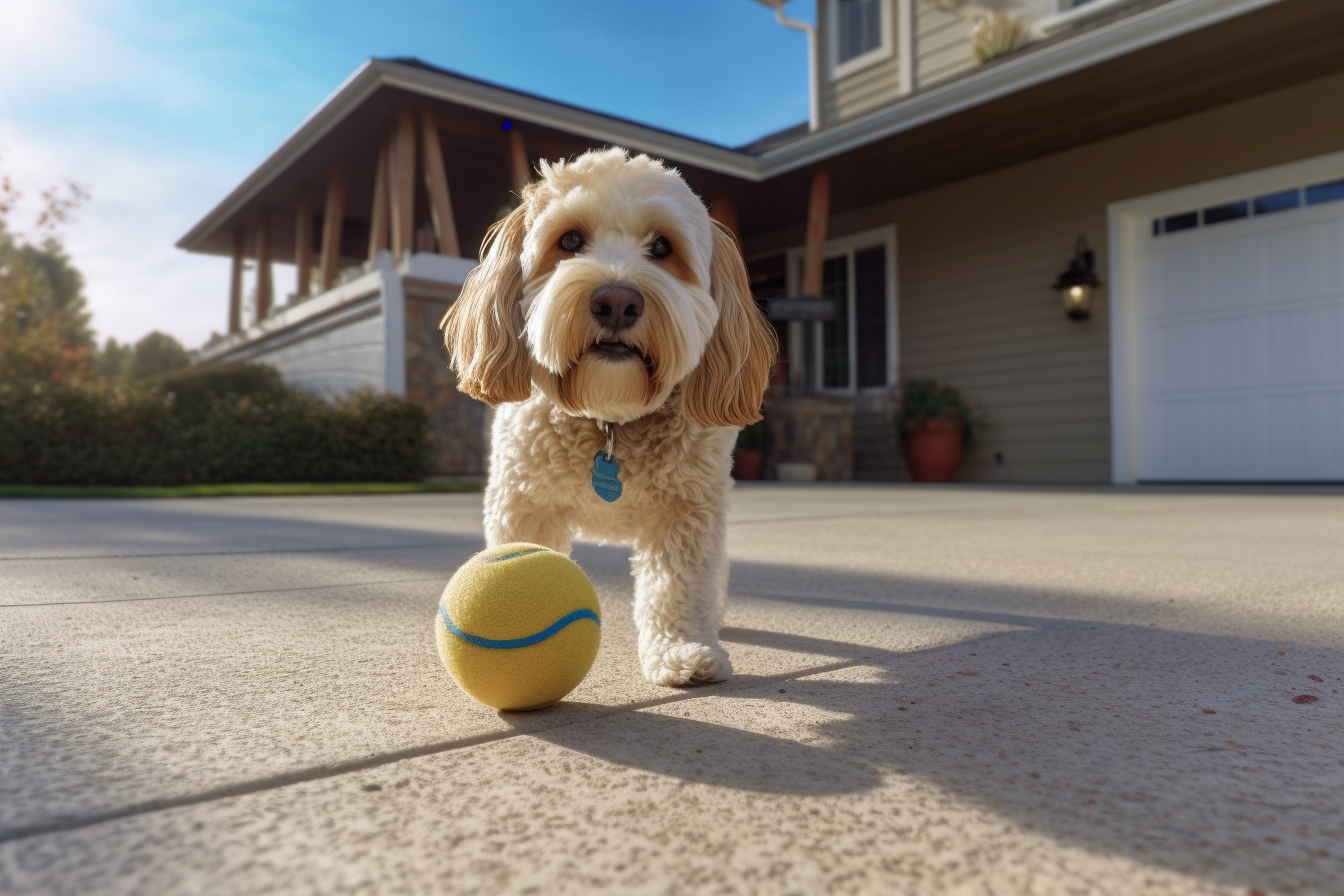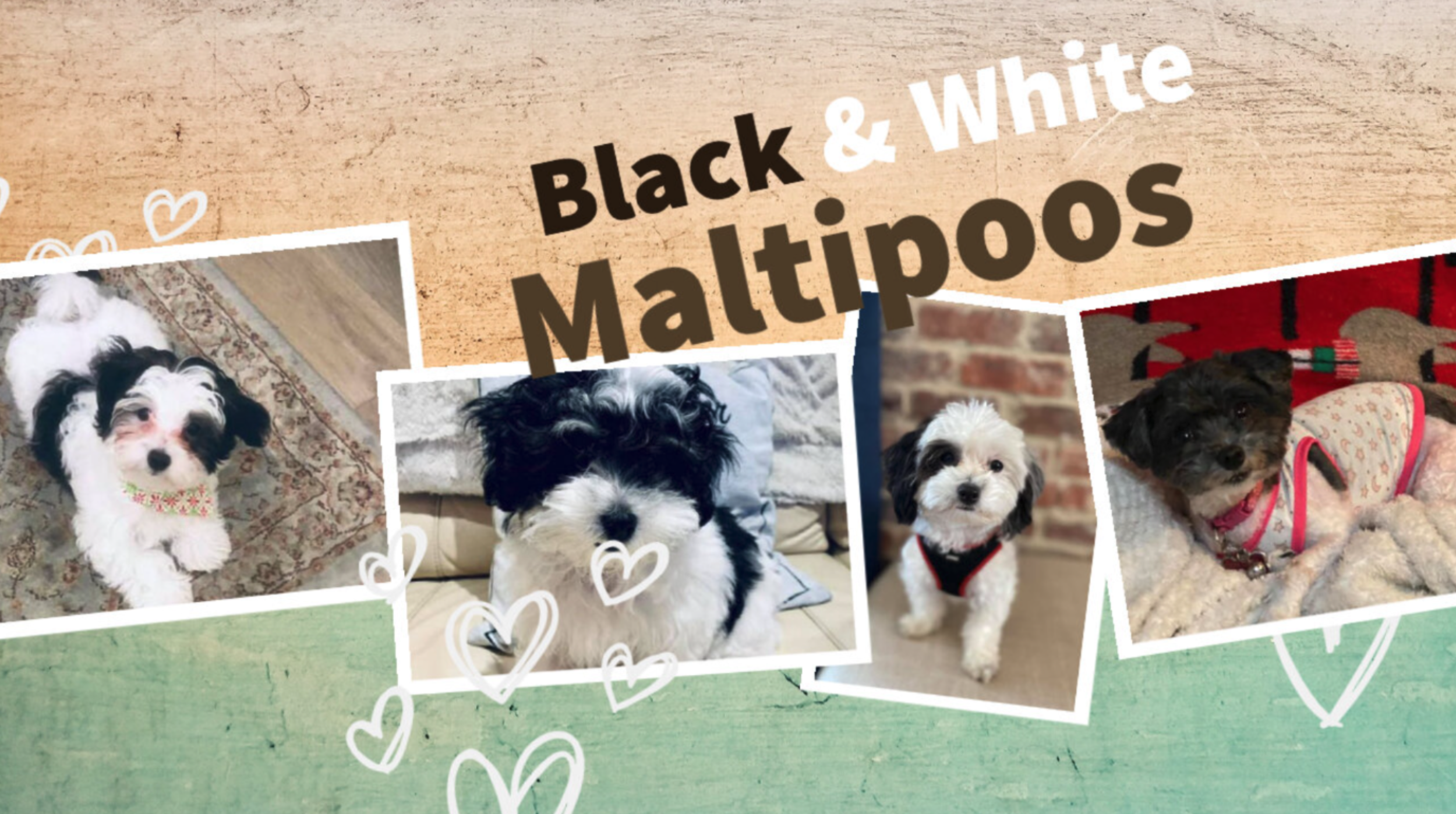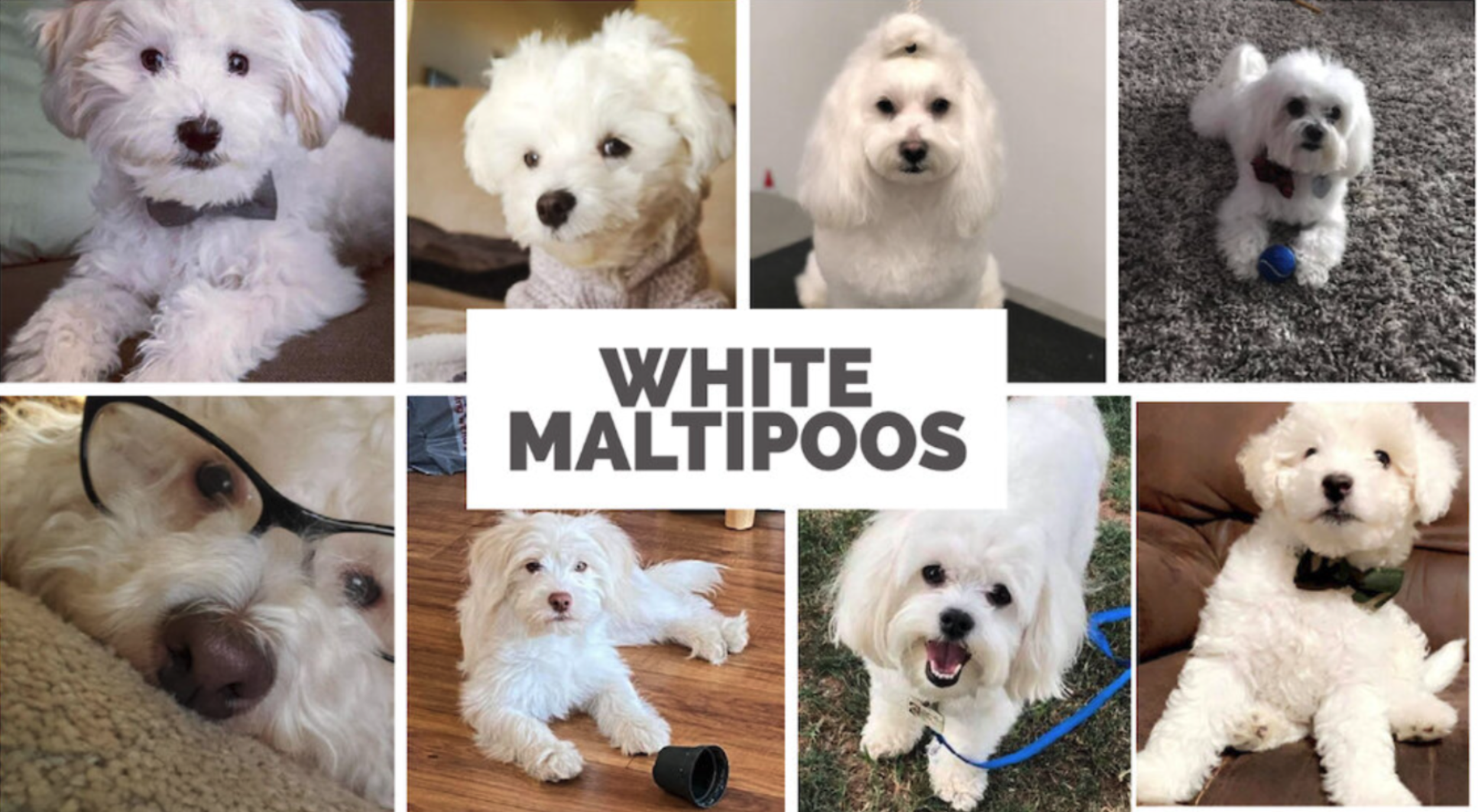Embracing a Cockapoo: A Comprehensive Guide for A Healthy and Happy Companion
Becoming a Cockapoo owner is an exciting adventure. These irresistibly charming and energetic bundles of joy are known for their endearing personality and boundless love. They're a hybrid breed with the cuddly charm of the Cocker Spaniel and the keen intelligence of the Poodle, making them a delightful addition to any household.
However, owning a Cockapoo is more than just having a delightful companion to share your home with. It's about being a responsible and caring pet parent who is committed to ensuring their well-being. A crucial aspect of this responsibility lies in understanding and addressing their health needs. From their unique health challenges and nutritional requirements to grooming practices and the significance of adequate training and socialization, every aspect is essential to your Cockapoo's overall health and happiness.
This comprehensive guide aims to shed light on these important topics. We'll explore common health issues prevalent in Cockapoos, delve into the value of genetic testing and pet insurance, and understand their unique nutritional needs. We will also discuss the importance of proper grooming, and how impactful training and socialization can enhance the quality of life for your beloved Cockapoo. Let's journey together into understanding how to provide the best care for a long, fulfilling, and healthy life for your Cockapoo.
Understanding Health Concerns of Cockapoos
Cockapoos are known for their health and long lifespan expectancy of 14 to 18 years with good care. However, like all breeds, they can have certain health issues related to genetics, environment, or lifestyle. Early recognition of these problems can ensure timely medical intervention.
Hip Dysplasia: Common in many breeds, this is a condition where the hip joint doesn't develop properly, leading to possible discomfort and mobility issues. Although not as prevalent in smaller breeds like Cockapoos, it's still something to be aware of.
Progressive Retinal Atrophy (PRA): This is a group of genetic diseases that cause the retina in the eye to deteriorate over time, which could eventually lead to blindness. Regular vet checks can help catch this disease early.
Ear Infections: Cockapoos, with their floppy ears, can be more susceptible to ear infections. Regular cleaning and checks can help detect any signs of an infection early on.
Allergies: Just like humans, Cockapoos can also be allergic to certain foods, environments, or substances. Symptoms could include itching, redness, and gastrointestinal issues.
Luxating Patella: Also known as a dislocated kneecap, this condition is seen more often in smaller dog breeds. Symptoms can include limping or an abnormal walk.
While these health concerns don't affect all Cockapoos, being aware of them enables early detection and action. Many Cockapoos enjoy healthy, long lives without major complications. Regular vet visits are essential, helping spot issues early and monitor your pet's health, which can enhance their lifespan and quality of life. Embrace your Cockapoo's companionship by committing to their well-being.
The Relevance of Pet Insurance for Cockapoos
Pet insurance is an essential aspect for any pet owner to consider, as it can greatly reduce financial strain associated with unexpected illnesses or accidents. This is particularly important in the early stages with your Cockapoo, as young puppies are not fully vaccinated yet and can be prone to various diseases.
Covering Unexpected Health Issues: The initial 30 days after you bring your Cockapoo home can be a sensitive period. They might catch infections such as Parvo or Giardia, especially in areas with high dog populations like parks or airports. These conditions can be expensive to treat, and having pet insurance can offer significant financial assistance.
Peace of Mind: Pet insurance, such as Trupanion that offers free 30-day coverage for new pets, allows you to concentrate on your Cockapoo's care rather than potential veterinary bills. It provides peace of mind knowing that you can afford to give your pet the best care possible.
Flexibility: Most pet insurance policies offer the option to cancel or adjust your coverage later. As such, you may choose to use the insurance during periods of higher risk or continue with it for long-term coverage.
Future Health Conditions: Certain breeds, including Cockapoos, can be predisposed to specific health conditions. Insurance can help offset the costs of managing these conditions, which can sometimes be significant.
Remember, the purpose of pet insurance is not about making a profit or saving money, but about risk management. Having pet insurance ensures that if your Cockapoo needs costly medical treatment, you won't be prohibited from accessing the necessary care due to cost.
Nutritional Needs of Your Cockapoo
The overall health and vitality of your Cockapoo is largely contingent upon their diet. Just like humans, dogs require a well-rounded and balanced diet to keep their bodies functioning optimally. Here's what you need to know about your Cockapoo's nutrition:
Importance of a Balanced Diet: A balanced diet is crucial for your Cockapoo's overall well-being. This means they should be receiving a mix of proteins, carbohydrates, fats, vitamins, and minerals from their meals. High-quality proteins from meats like chicken, beef, or fish are especially beneficial for muscle growth and repair. Fruits, vegetables, and grains can provide essential vitamins, minerals, and fiber, while healthy fats contribute to skin and coat health.
Proteins
Essential for growth and repair of body tissues
Sourced from high-quality meats like chicken, beef, fish, and lamb
Can also include protein from plant sources, such as lentils and peas
Carbohydrates
Provide energy for physical activities and metabolic processes
Should include complex carbohydrates for sustained energy, such as brown rice, sweet potatoes, oats, and quinoa
Fats
Essential for absorbing vitamins, producing hormones, and maintaining healthy skin and coat
Healthy fats can be sourced from fish oils, flaxseed, and animal fats
Vitamins and Minerals
Crucial for immune system function, bone health, and overall wellness
Common sources include fruits and vegetables like carrots, apples, and spinach
Many high-quality dog foods are also fortified with necessary vitamins and minerals
Fiber
Important for digestion and regular bowel movements
Can be found in whole grains, vegetables, and fruits
Water
Essential for hydration, digestion, and nutrient absorption
Always ensure your Cockapoo has access to fresh, clean water
Remember, it's important to consult with your vet to establish the best diet for your individual Cockapoo, considering their age, size, activity level, and health status.
Feeding Schedule: Puppies typically need to be fed more frequently – about three to four times a day. As your Cockapoo matures into an adult, this frequency can be reduced to two meals a day. Consistency in feeding times can also help regulate your dog’s digestive system and create a comfortable routine.
Choosing the Right Food: With countless dog food brands in the market, the best one we have found is Life’s Abundance Consider any specific dietary needs your Cockapoo might have, such as food sensitivities or allergies. Consult with your vet for personalized advice.
Hydration: Ensure your Cockapoo always has access to fresh, clean water. Dehydration can quickly lead to serious health issues. Replenish their water bowl frequently and ensure they have extra access to water during warmer months or after strenuous activity.
Obesity Prevention: Cockapoos, like many dog breeds, are susceptible to obesity. Overfeeding and lack of exercise are often primary culprits. Monitor your Cockapoo's weight and body condition regularly. Encourage regular physical activity to burn off excess calories and promote cardiovascular health.
Role of a Vet in Tailoring a Diet: Your vet is an invaluable resource when it comes to creating a diet plan for your Cockapoo. Based on your dog's age, weight, activity level, and health status, your vet can provide personalized advice on the type and amount of food your Cockapoo needs. They can also help you navigate through food allergies or sensitivities and recommend appropriate dietary changes or special diets when needed.
Feeding your Cockapoo a high-quality, balanced diet is one of the best ways to ensure they lead a long, healthy, and happy life.
Maintaining a Healthy Cockapoo Through Grooming
Grooming your Cockapoo is not only a matter of aesthetics; it's an integral part of their overall health and well-being. Regular grooming helps keep your Cockapoo clean, comfortable, and lets you monitor their health by detecting any potential issues early. Plus, it's an excellent way to strengthen the bond between you and your furry friend.
Brushing Your Cockapoo
Cockapoos are known for their soft, curly, or wavy coats, a trait inherited from their Poodle and Cocker Spaniel parents. Regular brushing is essential to prevent matting and tangling. Ideally, you should brush your Cockapoo daily, using a slicker brush to gently work through their coat, keeping it soft and shiny. Brushing also stimulates the natural oils in your dog's skin, which helps maintain a healthy and vibrant coat.
Bathing Your Cockapoo
Bathing should be done once every 1-2 months or as needed. It's important not to overdo it, as too frequent baths can strip the natural oils from your dog's coat, leading to dry, irritated skin. When you do bathe your Cockapoo, use a dog-friendly shampoo and conditioner to ensure their skin pH is balanced, and their coat stays soft and moisturized.
Eye and Ear Care
Due to their floppy ears, Cockapoos can be prone to ear infections. Regular cleaning with a vet-recommended cleanser can help prevent these issues. Be vigilant for signs of discomfort, such as scratching or shaking the head, which might indicate a problem.
Eye care is also important. Cockapoos may have tear stains around their eyes. Cleaning this area gently with a soft, damp cloth can help prevent any build-up. Also, be watchful for signs of redness, irritation, or excessive tearing.
Dental Care
Just like their human companions, Cockapoos also need regular dental care. Brushing their teeth regularly with dog-friendly toothpaste can prevent tartar build-up and periodontal disease. Dental chews also help in maintaining good oral health, but they're no replacement for brushing.
Nail Trimming
Nails should be trimmed regularly, usually once a month, but this can depend on how quickly your Cockapoo's nails grow. Overgrown nails can lead to discomfort or even pain. If you're uncomfortable doing this at home, your vet or a professional groomer can handle this task for you.
Professional Grooming
While routine grooming at home is essential, professional grooming services can also be beneficial. A professional groomer knows how to handle different breeds, including Cockapoos, and is trained to handle tasks that may seem daunting to pet owners, like trimming the coat or expressing anal glands. They also have the right tools and products for a thorough grooming session.
Moreover, a professional groomer can spot potential health issues that an owner might miss, such as skin infections, parasites, or unusual growths. So, consider scheduling professional grooming appointments for your Cockapoo every few months, in addition to your regular at-home grooming routine.
In conclusion, a regular grooming routine plays a critical role in maintaining your Cockapoo's health and happiness. It allows you to detect any potential issues early, keeps your pet looking and feeling their best, and provides an excellent opportunity to strengthen your bond with your furry friend.
Training and Socializing Your Cockapoo
Welcoming a Cockapoo into your life requires more than just providing for their physical needs. Proper training and socialization are crucial elements in ensuring your pet's overall well-being and happiness. They form the foundations of a confident, content, and well-adjusted dog who's both a pleasure to be around and mentally and emotionally healthy.
Training a Cockapoo should emphasize positive reinforcement methods. These playful and intelligent dogs respond well to rewards such as treats, praise, or play. Try to keep training sessions short but frequent, and aim for consistency in your commands and expectations. Remember, patience is key, as all dogs learn at their own pace.
Socialization is another significant part of raising a Cockapoo. Early socialization helps your pet become familiar with different environments, people, and other animals, aiding in their development into a calm and confident adult dog. Start by introducing your Cockapoo to a variety of experiences, people, and animals in a safe and controlled way, and always ensure that these experiences are positive for your pet.
It's also important to remember that Cockapoos need regular exercise to keep them physically healthy, and mental stimulation to keep them mentally engaged. Incorporate play into their daily routine, offer a range of toys and games, and consider puzzle feeders or obedience training to challenge them mentally.
Conclusion
Raising a happy and healthy Cockapoo is a rewarding experience that involves various aspects of care. Understanding potential health concerns, ensuring they receive a balanced diet, maintaining regular grooming routines, and incorporating consistent training and socialization are all essential components of Cockapoo care.
The importance of pet insurance cannot be overlooked. It offers financial protection against unexpected health issues, ensuring that your Cockapoo can always receive the necessary care without the worry of overwhelming veterinary costs.
As a Cockapoo owner, your role is vital in ensuring your furry friend enjoys a long, healthy, and fulfilled life. Being proactive in their health care, attentive to their nutritional needs, diligent in their grooming, and consistent in their training and socialization can ensure that your Cockapoo remains an active, contented companion for years to come. After all, a healthy pet is a happy pet, and there's nothing quite like the companionship of a happy Cockapoo.
Frequently Asked Questions
Q: Are cockapoos prone to heart problems?
A: Yes, Cockapoos can be prone to heart problems. These issues can be either congenital, meaning present at birth, or acquired later in life. These conditions affect the heart's ability to efficiently pump blood throughout the body. If you notice any symptoms of heart disease, such as fatigue, coughing, or difficulty breathing in your Cockapoo, consult a vet immediately.
Q: Do cockapoos have high anxiety?
A: Yes, Cockapoos are known to have high anxiety, especially when left alone for extended periods. They are social animals that crave companionship and can suffer from separation anxiety if they are left without company for too long.
Q: At what age do Cockapoos slow down?
A: Cockapoos typically start to mellow and slow down around the age of two, though they still maintain an energetic nature. By the time they reach seven years old, they begin to transition into a quieter, more relaxed phase of life.









